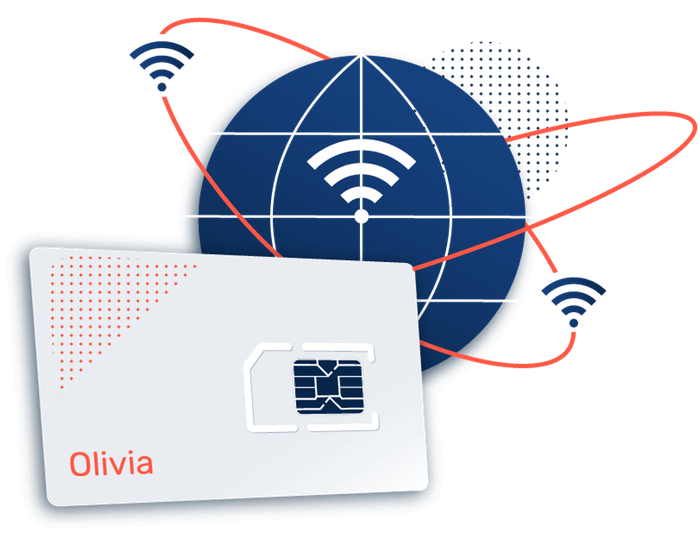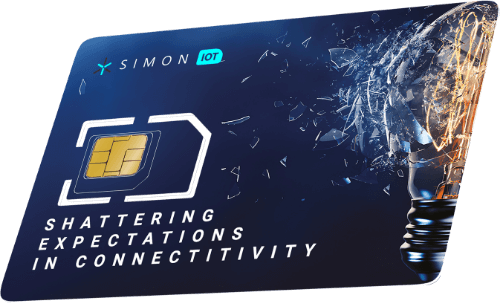Cellular Iot Sim Card The Ultimate Guide IoT SIM Cards
Global Nb-Iot Sim Card Global IoT SIM Card Solutions
The role of SIM playing cards in IoT connectivity is becoming more and more important as the world advances towards a extra interconnected landscape. IoT, or the Internet of Things, refers to the vast community of devices that communicate with one another and exchange knowledge to boost functionality and efficiency. In this ecosystem, SIM playing cards serve as an important component, facilitating wireless communication between gadgets.
SIM cards present the mandatory identification that allows IoT units to connect with mobile networks. The unique identification numbers programmed into these SIM playing cards allow devices to authenticate their connections with service providers. This is essential because it helps stop unauthorized access and ensures that knowledge transfers happen securely.
Iot Sim Card Pricing IoT SIM Card Global M2M Connectivity
Different types of SIM cards can be found for IoT functions. Traditional SIM cards, embedded SIMs (eSIM), and detachable SIMs all serve completely different needs in the IoT house. Traditional SIM cards can be inserted into units needing connectivity, whereas eSIMs are embedded instantly into devices and are more adaptable to adjustments in service suppliers. The versatility of eSIM technology plays a big position in varied IoT functions.

IoT devices come in varied shapes and sizes, from smart house appliances to industrial machinery. Each sort of system could have different connectivity needs depending on its objective. SIM playing cards can present various data plans tailored for particular use circumstances, optimizing communication based on bandwidth requirements, knowledge utilization, and different components. This flexibility is instrumental in enhancing the general efficiency of an IoT ecosystem.
Telkomsel Iot Sim Card IoT SIMs Embedded Connectivity
Another aspect of the SIM card's position in IoT connectivity is the power to trace and manage units remotely. Mobile community operators offer platforms that enable users to watch their IoT gadgets in real-time. This functionality is particularly significant in industries such as logistics and transportation, where understanding the precise location of property can result in higher operational effectivity and value savings.
As IoT units proliferate, managing connectivity becomes more complex. Here, the position of SIM playing cards extends to enabling centralized administration options that assist administer multiple gadgets concurrently. This is especially advantageous for enterprises working massive fleets of linked devices, which can track efficiency and connectivity more effectively through a single administration interface.
Cellular Iot Sim Card IoT SIM Card
A major concern within the Internet of Things is safety. With millions of devices connected to the internet, making certain the integrity and confidentiality of knowledge is paramount. SIM cards contribute to this security architecture by providing encryption capabilities that safeguard sensitive information. The cryptographic keys embedded within SIM cards help safe communications between gadgets, making it tough for unauthorized entities to intercept or manipulate information exchanges.
Moreover, the function of SIM playing cards is evolving as know-how develops. The introduction of Narrowband IoT (NB-IoT) and Long Range Wide Area Networks (LoRaWAN) has opened new avenues for connectivity, notably for low-power and long-range applications. SIM cards designed for these specific technologies enable devices to function effectively over long distances whereas consuming minimal energy. This is very related for distant monitoring and management systems, where changing batteries may be expensive and difficult.
While SIM cards have made strides in enhancing IoT connectivity, additionally they face challenges. For instance, compatibility issues come up when integrating numerous devices across completely different networks. The introduction of standards and rules geared toward harmonizing IoT providers is an ongoing effort, but the pace of innovation often outstrips these measures. Sim Card Per Iot. Adapting SIM playing cards to satisfy various requirements is crucial for ensuring a seamless expertise in the burgeoning IoT landscape.
Sim Card Iot IoT M2M SIM Cards

The influence of 5G technology can additionally be reshaping how SIM cards operate within IoT connectivity. With significantly improved speeds and reduced latency, 5G presents capabilities that redefine IoT purposes, ranging from smart cities to autonomous vehicles. SIM playing cards designed specifically for 5G networks might be crucial in leveraging the total potential of these next-generation capabilities.
In varied sectors, including agriculture, healthcare, and smart cities, the function of SIM cards turns into increasingly crucial. In agriculture, for instance, sensors linked via SIM playing cards can monitor soil conditions, enabling farmers to make informed choices about irrigation and fertilization. Similarly, in healthcare, remote affected person monitoring gadgets utilize SIM playing cards to transmit vital health information to healthcare providers, enhancing affected person care.
The rising reliance on cloud providers in IoT functions often necessitates strong information transfer solutions. SIM playing cards facilitate these connections, enabling gadgets to send and receive data from cloud platforms effectively. This capability not solely enhances the functionality of IoT solutions but additionally improves the flexibility to research information for higher decision-making.
As connectivity evolves, the significance of SIM playing cards in maintaining a strong ecosystem can't be overstated. Their function in identifying, securing, and managing units is central to making sure seamless communication throughout the IoT landscape. Whether it's by way of conventional SIM cards or newer technologies like eSIMs, their significance will only proceed to develop in an more and more connected world.
Sim Card Iot Devices Built For Bigger Internet of Things SIM Cards
The integration of synthetic intelligence and machine learning into IoT solutions signifies yet one more evolution in connectivity. SIM playing cards that may handle enhanced knowledge processing capabilities might be important for the smart decision-making processes enabled by these technologies. Collectively, these developments will lead to more intelligent methods able to adapting to altering conditions autonomously.
In conclusion, the role of SIM cards in IoT connectivity is multifaceted and important for the expansion and sustainability of an interconnected world. By guaranteeing safe identification, facilitating distant management, and adapting to new technologies, they play a critical half within the evolution of IoT functions across various sectors. As technology advances, the importance of SIM cards will solely intensify, driving further innovations and improvements in connectivity methods.

- SIM cards present a safe and distinctive identifier for IoT devices, enabling trusted communication within networks.
- They facilitate seamless connectivity in numerous environments, from urban areas to distant places, enhancing the reliability of IoT functions.
- With the appearance of Embedded SIM (eSIM) technology, IoT devices can change carriers simply, enhancing network adaptability and decreasing downtime.
- SIM cards contribute to knowledge encryption, making certain that the data transmitted between gadgets and networks stays safe in opposition to unauthorized entry.
- They allow over-the-air updates, permitting producers to push firmware upgrades on to IoT gadgets with out bodily entry.
- By integrating subscription administration, SIM playing cards assist in maintaining and monitoring knowledge plans, optimizing prices for businesses deploying large IoT networks.
- SIM cards enhance device tracking capabilities, making them crucial for logistics and asset management in various industries.
- They support multi-network connectivity, which enhances redundancy and reduces the danger of communication failures in important purposes.
- The role of SIM playing cards in community slicing allows for tailor-made connectivity solutions, ensuring that different IoT applications obtain the suitable bandwidth and latency.
- SIM playing cards are pivotal in facilitating system provisioning and management, streamlining the deployment course of for large-scale IoT implementations.undefinedWhat is a SIM card and why is it necessary for IoT?
Nb-Iot Sim Card IoT SIM card Knowledge Base
A SIM card is a small chip that allows devices to connect to mobile networks. In IoT, it provides safe communication and permits units to send and receive data, making them accessible and manageable remotely.
How do SIM playing cards improve knowledge security in IoT devices?
SIM playing cards make the most of encryption and authentication protocols that ensure safe communication between the gadget and the community, defending against unauthorized entry and information breaches.
What kinds of SIM cards are used in IoT applications?
Nb Iot Sim Card Simplify IoT SIM Card Management
IoT purposes typically use specialized SIM cards, such as M2M SIMs and eSIMs, designed for numerous environments and offering enhanced durability, remote administration, and suppleness in connectivity options.
Can IoT devices operate with out SIM cards?
Iot Single Sim Card IoT M2M SIM Cards Data Plans
While it's possible for IoT devices to connect through Wi-Fi or different navigate here wireless technologies, SIM cards are crucial for mobile connectivity and are essential for units that require in depth coverage and roaming more helpful hints capabilities.
What is the difference between conventional SIMs and eSIMs in IoT?
Traditional SIM playing cards are physical devices inserted into gadgets, whereas eSIMs are embedded chips that can be programmed remotely, offering larger flexibility for system manufacturers in managing connectivity with out hardware modifications.
How do SIM cards contribute to price administration in IoT deployments?
Iot Sim Card North America IoT Data SIM Card Plans Features
SIM playing cards enable optimal connectivity solutions, permitting companies to decide out appropriate data plans and handle knowledge usage effectively, helping to reduce operational costs related to knowledge transmission (Telkomsel Iot Sim Card).
What are the challenges related to using SIM playing cards in IoT?
Challenges can include managing a quantity of SIM cards for numerous devices, making certain compatibility, addressing community protection points, and dealing with potential fraud or safety vulnerabilities in cell communication.
How can companies select the best SIM card for their IoT needs?
Hologram Iot Sim Card IoT SIM Card Data Plans Pricing
Selecting the proper SIM involves considering elements like community protection, information usage, device compatibility, long-term scalability, and security measures. Consulting with service suppliers may help align selections with operational needs.
What role do SIM cards play in future IoT innovations?
SIM playing cards are very important for enabling next-generation IoT improvements, as they facilitate seamless connectivity, drive automation, and improve device management capabilities, thus supporting more advanced applications like smart cities and remote healthcare.